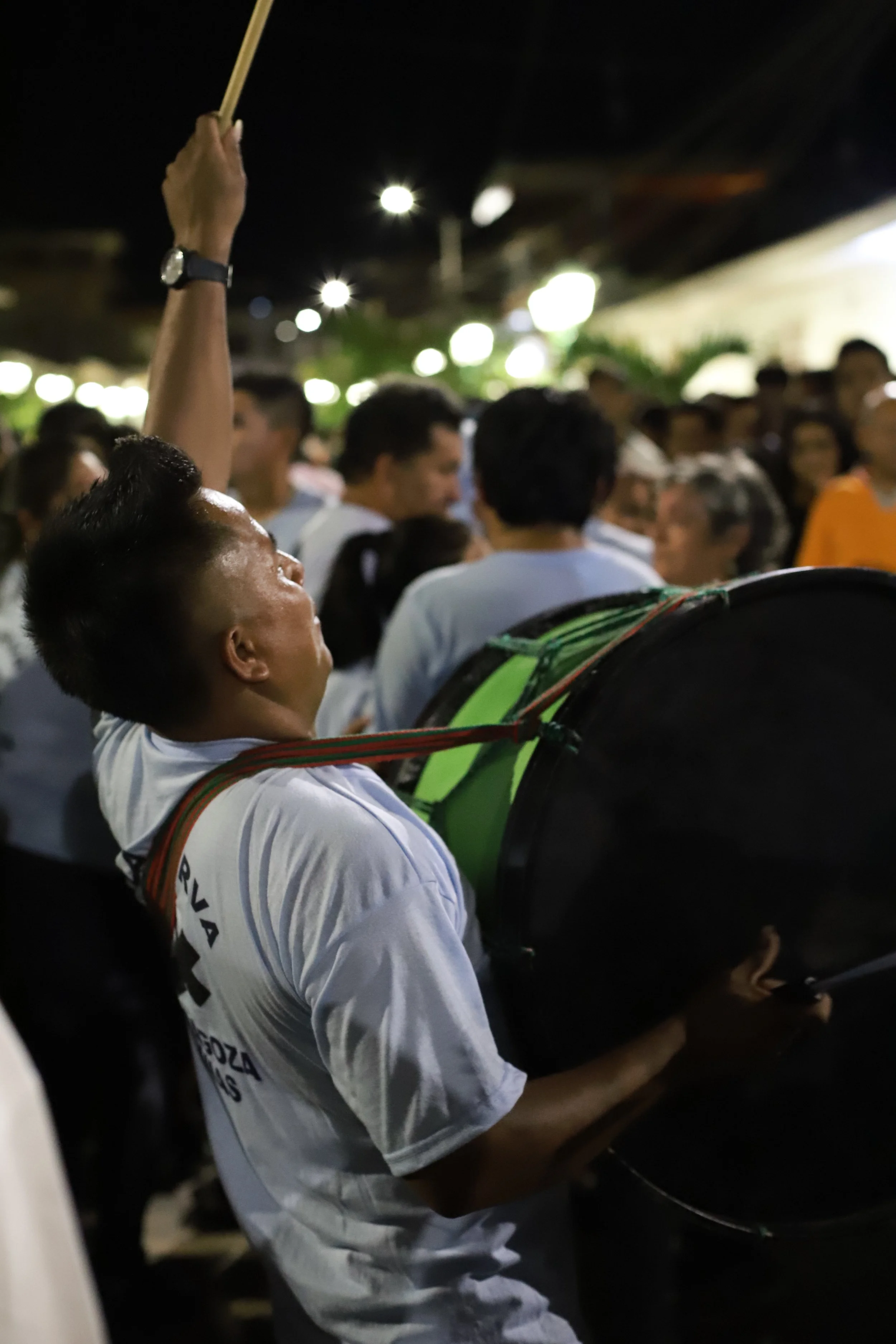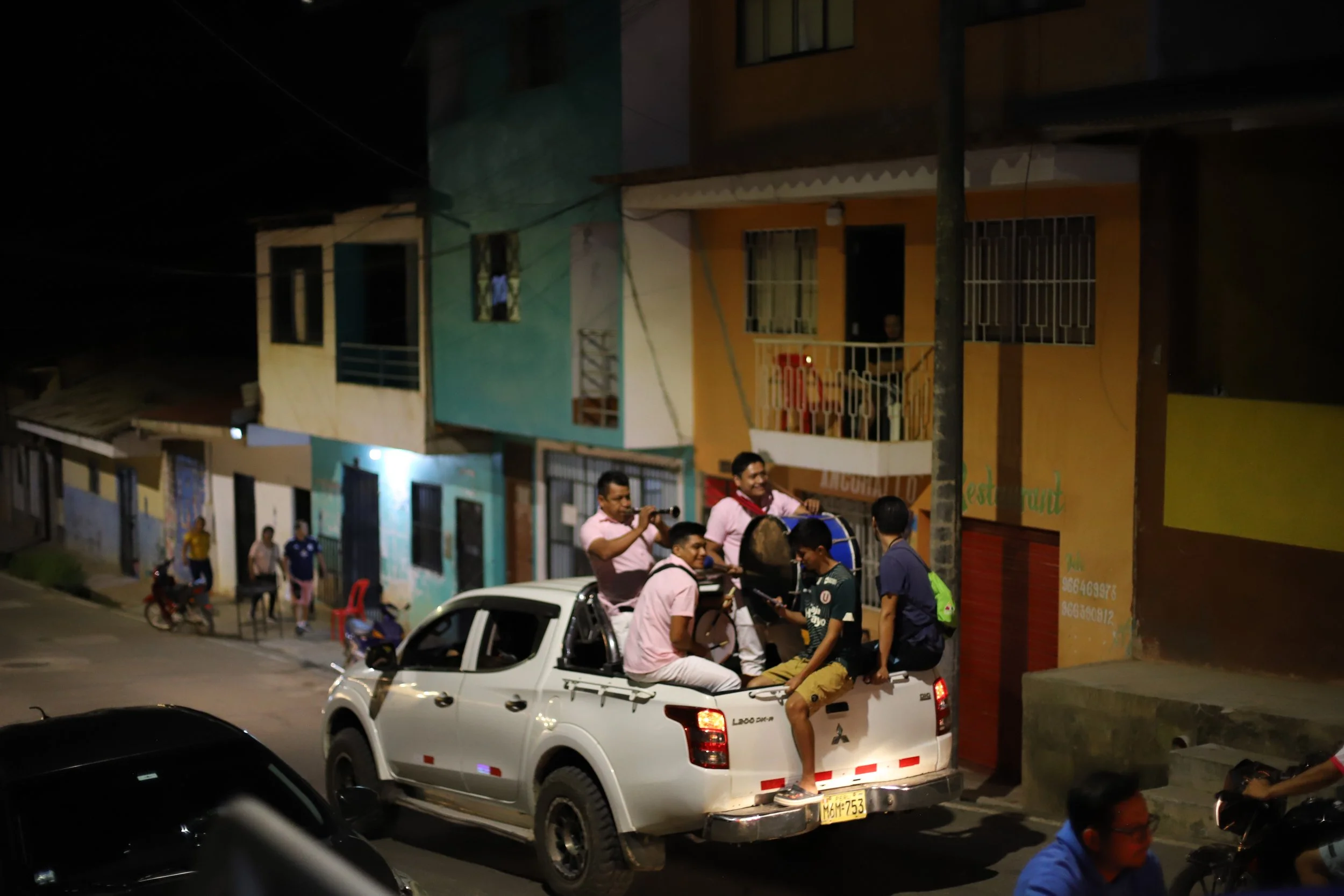The project’s innovation lies in presenting pandilla for the first time in Europe, both as a traditional performance and as a newly reinterpreted form. While many world music projects focus on presentation, Choque de Pandillas goes further by actively commissioning electronic reinterpretations and facilitating rehearsals that merge traditional and contemporary approaches.
This is also the first initiative to explore pandilla’s potential in a club/electronic context, positioning it as a unique addition to Berlin’s experimental music landscape. The collaborative live set between Los Hijos de Lamas and Dengue Dengue Dengue represents a rare encounter: community musicians from the Amazon performing together with internationally acclaimed electronic producers, creating a one-of-a-kind performance that cannot be replicated elsewhere.
Berlin is home to a globally significant experimental and club music scene, as well as a diverse audience interested in intercultural exchange. Choque de Pandillas directly addresses both. It targets a wide public: from those engaged in so-called “world music” and cultural traditions, to listeners drawn to adventurous, non-standard, experimental club sounds.
For German audiences, the project expands the cultural landscape by presenting something completely new — a tradition never before staged in Europe — and by doing so in a format that bridges familiar contexts (clubs, experimental venues) with unfamiliar sounds. It reflects Berlin’s role as a hub of openness, dialogue, and cultural innovation.
The sustainability of Choque de Pandillas is ensured through its multiple outputs. The vinyl release serves as a lasting document of the first European presentation of pandilla, while audiovisual documentation of the event allows the project to reach wider audiences. The networks built between Peruvian traditional musicians and Berlin’s electronic scene will form the basis for future collaborations, ensuring that the impact continues beyond the immediate event. By combining heritage with experimentation, Choque de Pandillas creates not only a cultural event but also a lasting platform for artistic exchange - a contemporary continuation of the “clash” that gives the project its name, now staged between Amazonian tradition and Berlin’s experimental scene.

